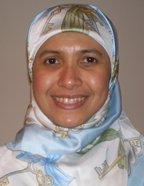
Dr Dina Shona Laila
- Position
- Lecturer
- Institution
- Engineering Sciences (FEE)
- Webpage
- http://www.southampton.ac.uk/engineering/about/staff/dl2a10.page?
- d.laila@soton.ac.uk
- Telephone
- +44 23 8059 8331
- Contact
- Complete this online contact form to contact Dina Shona.
Dina Shona Laila is currently a lecturer in the Electro-Mechanical Engineering Research Group, School of Engineering Sciences, Engineering and the Environment, The University of Southampton.
Dina was born in Jakarta, the capital city of Indonesia, but spent most of her childhood living in several small towns around the forest in Sumatra, one of the main islands in Indonesia.
She received her PhD degree in Control Engineering from the University of Melbourne in 2003. After finishing her PhD, she joined the Control and Power Group (EE CAP), Electrical and Electronic Engineering Dept., Imperial College London (2003-2006) working mainly in the nonlinear control research area. Between 2006 and 2007, she was with the Institute for Design and Control of Mechatronical Systems, Johannes Kepler University Linz, Austria where she was working on the topic of identification and control of mechatronics systems, particularly for combustion engine test bench.
She returned to Imperial College in 2007, and expanding her research to the area to nonlinear control for an unmanned aerial vehicle (UAV) and to the measurement and control for power systems, and power system signal analysis.
Before joining Southampton, Dina was with the Faculty of Engineering, Kingston University, London (2009-2011). Dina Shona Laila is a Senior Member of the IEEE. She actively serves as a member of the IEEE CSS Conference Editorial Board and as a reviewer for a number of main journals and conferences in Control Engineering field.
Research Interest:
-
Nonlinear control system theory: developing tools for design and analysis of nonlinear (continuous-time, discrete-time and sampled-data) control systems: Lyapunov stability theory and its extensions, LaSalle's and Matrosov's type stabilities, Lyapunov and dissipativity based design, small gain theory, discrete-time stabilization of Hamiltonian conservative systems.
-
Numerical analysis: developing existing results for numerical literature to the applications of discrete-time design and analysis of dynamic control systems: Runge-Kutta methods, higher order approximations, Hamiltonian conserving methods.
-
Engineering applications: applying theoretical results to real life engineering applications, particularly to biomedical engineering, robotics and agricultural engineering applications.
-
System design and hardware implementation: extending the applications to system design and laboratory-scale hardware implementation.